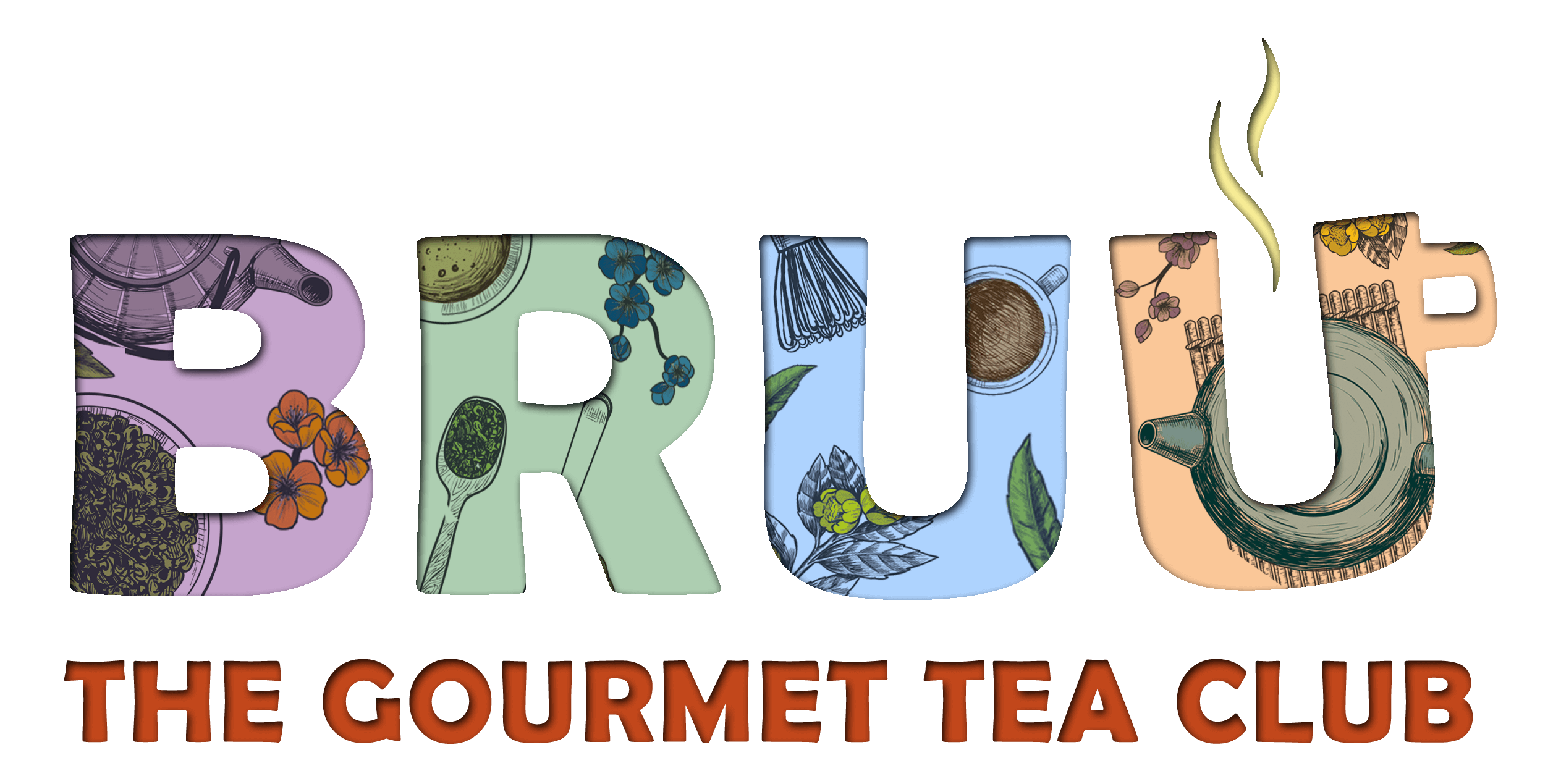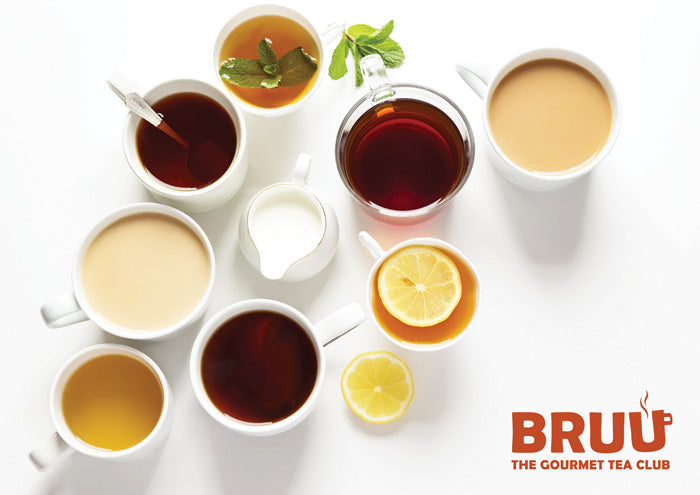Milk, lemon, honey and sugar in tea
So in this weeks tea academy instalment we're going to look at why we add milk, lemon, honey and sugar to tea. Let's kick things off with milk...
When you prepare your BRUU tea, how do you take it? Milk, sugar, lemon or even honey? We wanted to delve into this topic and see if there are any benefits to taking your tea with extras.
By far the biggest tea accompaniment in Britain is milk and when this tradition began is for the most part speculative. We weren’t the first tea drinkers to add milk and it's thought that the British simply followed the methods of other countries and it became the fashion. In Hong Kong, they make a tea now known as ‘Hong Kong style milk tea’ which is half milk and half water - so like a tea latte, right?!
It is often debated whether to add the milk before or after the water. In his 1946 essay ‘A Nice Cup of Tea’, author George Orwell wrote, "tea is one of the mainstays of civilisation in this country and causes violent disputes over how it should be made". This debate has been going on since at least the mid-20th century. Studies have shown that if the milk reaches a level of temperature in a certain time then this will change the taste of the tea. But generally, we believe that if the milk is added after when the tea has brewed properly, then the tea taste is not affected. There is no right answer, either way, it’s simply a matter of personal preference.
So, the question is whether a tea is better with or without milk? If you ask a tea connoisseur, then the answer will probably be without. After all, milk will mask a lot of the subtle flavour profiles in the tea and dairy, in general, is not that good for you. However, beyond that level of snobbery, there are plenty of teas that are enjoyable with a splash of milk and in general, bold, astringent black teas work best with milk.
When it comes to lemon, then green tea is the way to go. Drinking green tea with lemon extends the health benefits even further. According to researchers at Purdue University, “citrus juice brings out green tea's antioxidants, making them more available for your body to absorb. Catechins, which prefer the acidic environment of the stomach, become degraded in the more alkaline conditions of the small and large intestine where nutrient absorption takes place. Lemon juice can increase the number of catechins your body extracts from green tea by up to six times. While compounds in tea can inhibit iron absorption from foods in your diet if you drink too much, green tea with lemon reduces that effect”. Earl Grey is another tea which is commonly served with a slice of lemon which helps to enhance its floral notes. So, on the whole, lemon seems like a fantastic addition to your BRUU.
Looking at sugar and honey, it is mostly down to personal taste. Some teas can taste bitter so adding sugar or honey helps to sweeten them. Adding honey to tea also has a variety of health benefits. Honey is a rich source of vitamins, minerals and antioxidants and provides magnesium, potassium, calcium, iron, copper and zinc as well as vitamins A, B-complex and C. So, having a sweet tooth isn't always a bad thing. But we would recommend reserving sugar for only a few BRUU’s, otherwise, before long you will be that toothless old person in the family that always asks for 4 teaspoons of sugar in every cuppa!
More recently, we have been enjoying Cane Sugar in our tea, which contains fewer calories and is a raw ingredient so has less processing. Other great options include Coconut Sugar and Stevia. However, we say how you take your tea is down to you, if you enjoy it!





